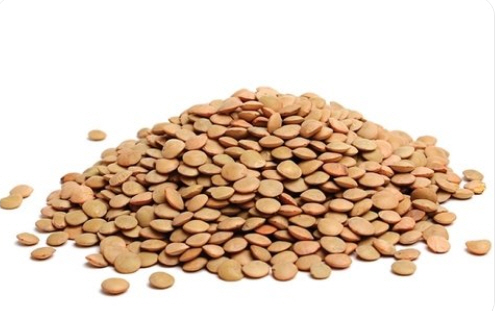
The Rise of Lentils as a Nutritional Powerhouse
Lentils have recently become a hot topic in the world of health and nutrition. Known for their unique convex lens shape, these small legumes are often referred to as "lens beans" and are a key component of the "low-speed aging" diet. This diet has gained attention for its focus on slow, sustainable aging through nutrient-dense foods.
Lentils are highly praised by nutritionists due to their rich content of plant-based protein, dietary fiber, and low sugar levels. When compared to brown rice on a 100g basis, lentils offer 7.33g of protein versus 23.58g, and 3.9g of dietary fiber compared to 12.2g. While they may not match brown rice in some areas, lentils still provide an impressive nutritional profile. They also contain only 1.5g of fat, making them a healthy alternative to many other foods.
The U.S. health magazine 'Health' has recognized lentils as one of the world's top five superfoods, highlighting their numerous benefits. According to the Korea Agro-Fisheries & Food Trade Corporation, lentils are particularly beneficial for digestive health, helping to prevent constipation and support weight management. In addition, they help lower cholesterol levels and regulate blood sugar, making them a valuable addition to a balanced diet.
Health Benefits of Lentils
Lentils are packed with essential nutrients such as iron and folic acid, which play a crucial role in preventing anemia by promoting the production of red blood cells. These nutrients are especially beneficial for pregnant women and menopausal women. Folic acid is vital for cell production and helps reduce the risk of fetal malformations. A single cup of lentils can provide up to 90% of the recommended daily intake of folic acid.
Moreover, lentils contain estrogen-like compounds that may help alleviate menopausal symptoms. They are also rich in iron and magnesium, which aid in fatigue recovery and reduce the risk of heart disease. Potassium and dietary fiber further contribute to cardiovascular health by helping to control blood pressure and cholesterol levels.
However, it's important to note that excessive consumption of lentils can lead to digestive issues such as abdominal pain or diarrhea due to their high fiber content. Therefore, moderation is key when incorporating lentils into your diet.
Versatility and Convenience
One of the main advantages of lentils is their quick cooking time compared to other legumes. This makes them an ideal choice for those looking for a fast and nutritious meal. Additionally, lentils are naturally gluten-free, making them suitable for individuals with gluten sensitivities.
In many foreign countries, lentils are commonly used in salads, curries, and other dishes. Their versatility allows for a wide range of culinary applications, from soups to stews, making them a staple in many households.
Growing Popularity in South Korea
In South Korea, lentils are gaining momentum as a key ingredient in various food products. They are currently being used in multigrain rice blends, which have seen a surge in popularity. One notable product is Maeil Dairy’s new offering, "Maeil Dairy Lentil Kong," which sold out within a week of its launch in July, indicating strong consumer interest.
Industry experts believe that lentils, once associated with singer Lee Hyo-ri, are now re-emerging as a symbol of the low-speed aging diet. With the increasing availability of convenience foods made from lentils, it is expected that their popularity will continue to grow.
Conclusion
Lentils are more than just a trendy food—they are a nutrient-rich powerhouse with a wide range of health benefits. From supporting heart health to aiding in digestion, lentils offer something for everyone. As their popularity continues to rise, it's clear that these small beans are here to stay. Whether enjoyed in a salad, curry, or as part of a balanced meal, lentils are proving to be a valuable addition to any diet.
